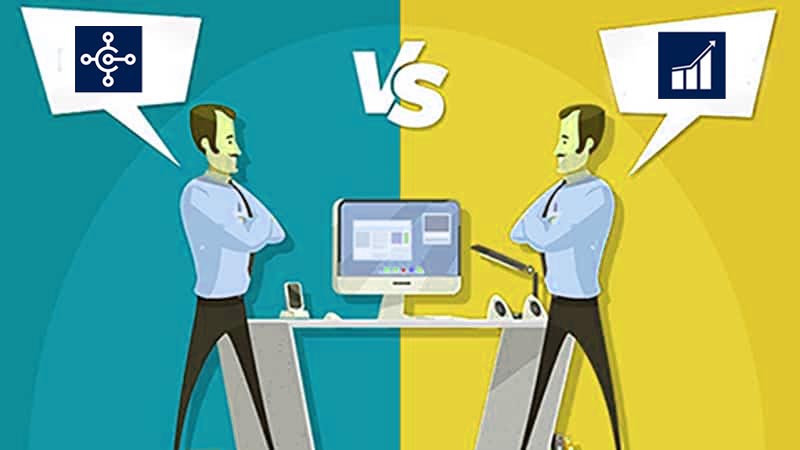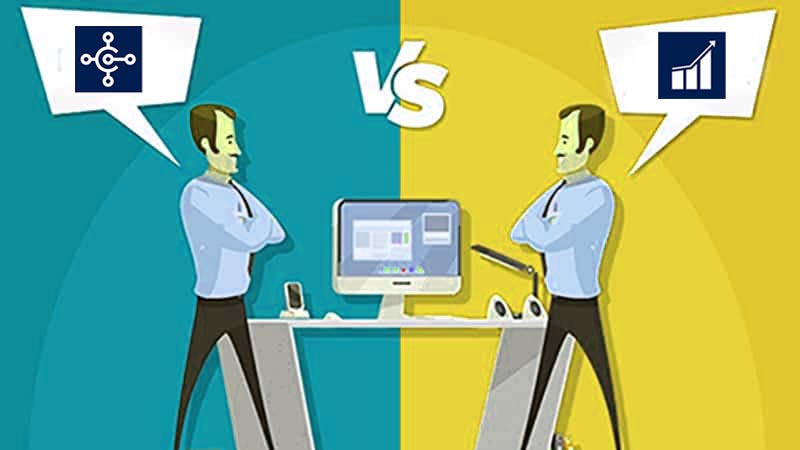Business Central vs NAV
Software like Microsoft Business Central offers a collaborative approach within your production facility, which ultimately allows your facility to communicate effectively across various departments.
While Business Central implementation can be done by your choice either with Business Central Cloud or Business Central On Premise, the benefits exceed the cost and ultimately enables you to take your business to the next level in terms of efficiency.
But a lot has happened since the last few years and the purpose of this blog is to clarify and classify what’s different between Dynamics NAV and Dynamics 365 Business Central. And you are not the only one who’s had this doubt; this has been running in the minds of a lot of people.
Evolution of Microsoft Dynamics NAV
Microsoft Dynamics NAV, earlier known as Navision, was an on premise ERP that was acquired by Microsoft in 2002 and rebranded in 2005. From then, there was no looking back.
After acquiring Navision, they used the same codebase and accelerated the functionality of the software, which was transformed into a cloud based ERP solutions for all businesses and primarily segmented for the SME’s.
Since the information within the system is as accurate as possible, businesses can make realistic estimates and much more efficient/effective forecasts. Also, getting redundant processes automated – employees will have more time to work on other important projects and tasks which can be focused on revenue-raising and brand building.
Adding on to the existing product suite of Microsoft Dynamics that have always been acclaimed, the tech-giant also added Business Central as a prime addition – which is an evolved extension of the OG NAV software that streamline business processes and make it easier and more efficient for companies to collect data and pass it on to other departments making work easier.
If you are reading this blog now and want to choose between Dynamics NAV or Business Central, we’d like to let you know that Microsoft stopped offering NAV as an option in late Dec 2018. And this means no more updates or security fixes that have been passed since the date.
Rise of Dynamics 365 Business Central
Business Central is robust and flexible. The software is not a one-size-fits-all, but it can be tailored to the unique needs of a business operation.
However, this software is also able to adapt to the changing needs of a growing business, eliminating the need to purchase a new solution once your business changes.
With two options such as hosting Business Central On-Premise or as Business Central Cloud, this platform goes a long way in helping businesses achieve what they seek out.
The best part about Business Central is, it reduces administration and operations costs through the utilization of accurate and real-time data. It allows business owners to manage operations, prevent delays within production, and break up information, ultimately enabling managers to make decisions much more quickly and efficiently.
It has become a necessity for businesses to provide benefits such as improved productivity, increased efficiency, cost reduction, and streamlined processes. And Microsoft Business Central perfectly fit the gaps that businesses were struggling to. As of now, so many companies across the globe have been influenced and continue to rise, with the help of this robust invention.
Difference Between NAV and Business Central
Now that we have figuratively said that Business Central is an evolution of what earlier used to be NAV, doubts are common.
What good does this platform do when compared to its predecessor? Will the user functionality be the same or have they been tweaked based on modernity? Will the existing updates be converted or do we have to set everything up from scratch?
Below, we have explained Dynamics 365 Business Central features and how it is much cooler than what it used to be, under the name of Dynamics NAV.
1. Subscriptions, Licenses, and Fee
Unlike Dynamics NAV which was majorly an Dynamics 365 Business Central On-Premise solution, the Dynamics 365 Business Central Licensing fee had to be paid on one go and the rest was set free. Whereas with Business Central being a SaaS solution, businesses can also opt for periodic solutions. The spending can be determined based on your business budget.
2. Awesome User-Interface
No matter how advanced a product or software is, if it is not easy to use, customers would alienate it. That being said, Microsoft Business Central has improved its UI seamlessly. With updated command bars, intuitive search features, business metrics, improved dashboards, and more. Dynamics 365 Business Central is surely a key dynamic for businesses to scale up the ladder.
3. Integrations Handling
Amid the fully loaded features that Business Central boasts, this is one to look out for. Business Central is easy to integrate with third-party apps to boost efficiency and increase capabilities. Integrate all the necessary platforms and achieve results faster and extend your company’s growth.
Automatic Upgrades
No need to pay any extra or additional fee to catch hold of updates when they are released by Microsoft. The updates can be installed seamlessly since this is a SaaS platform, with minimal or no tech-person involvement. The charges are already a part of the subscription fee you paid earlier.
Ready to rise with Business Central?
If you have been thinking all these days about how Dynamics NAV is differentiated from Business Central, we hope this blog shrugged off your doubts.
And it is of no doubt that Business Central comes in handy for enterprises to earn profits and effectively streamline all their business processes and activities, the way they want.
This also provides a smart approach to integration and helps you transform the way you work. Swiftly connect your apps to save time, secure efforts, and increase productivity.
Harness the power of Business Central and uncover newer business possibilities by maintaining a secure and streamlined system that does the work for you while you are engaged with other important tasks.
Want an existing NAV Upgrade? Still, have a few more doubts that need some clarification? Or looking to explore more on Business Central? Or want to know how Business Central will leverage your data and increase business effectiveness? Hop in and let’s discuss.




